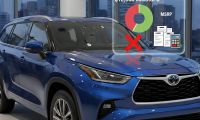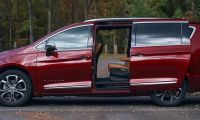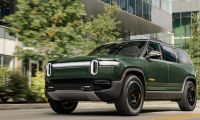The Subaru BRZ and Scion FR-S are completely identical to each other right down to the 200 horsepower (and 151lb-ft of torque) Boxer engine mated to a 6-speed manual transmission so when these vehicles hit American showrooms, they will also share the fuel economy figures of 22 miles per gallon in the city and 30m mpg on the highway based on the EPA test cycles. These are good numbers for the lightweight, sporty Japanese coupe but with what are low power numbers compared to other cars in the class, these fuel economy are a little lower than what many people expected.
Main competitors of the Subaru BRZ and Scion FR-S in the US market are the 2013 Hyundai Genesis Coupe, the 2013 Ford Mustang V6 and the 2013 Chevrolet Camaro V6. The Genesis Coupe packs a 274 horsepower turbocharged 4-cylinder that offers 21mpg around town and 30 on the highway, giving the advantage around town to the BRZ and FR-S but the 200hp Toyota/Subaru joint sports car offers the same fuel economy on the highway as the 274 horsepower Hyundai turbo coupe. The V6 models of the Ford Mustang and the Chevrolet Camaro both offer vastly more power (323hp for the Camaro, 305hp for the Mustang) but the BRZ and FR-S do offer a slight advantage over these much brawnier rear wheel drive coupes with the Camaro hitting 17/28 while the Mustang achieves 19/29. It should also be noted that the Mustang and Genesis coupe, both of which are likely a substantial amount quicker and faster than the Subaru BRZ and the Scion FR-S, offers 31mpg on the highway when fitted with the automatic transmission option.
The fuel economy figures published by the EPA for the Subaru BRZ and the Scion FR-S are not bad by any measure, putting them even of slightly better than any rear wheel drive sports car in the US market but with such a substantial difference in power and weight many expected that this new lightweight coupe would easily best the competition in fuel economy. The BRZ and FR-S are competitive but many expected the fuel economy figures to blow away the competition which clearly isnt the case. Perhaps Toyota and Subaru should have gone the way of forced induction to improve the power output and potentially offer better fuel economy than the rest of the class. The Hyundai Genesis 4-cylinder coupe is a fine example of the benefits of turbocharging with their 2.0L engine making an impressive 274 horsepower, 275lb-ft of torque and better than 30mpg.
There have been plenty of rumors that the new Toyota/Subaru/Scion sports coupes could be offering a turbocharged engine in the future with more power (such as an STI version for the BRZ) but for the time being, the 200hp engine offering 22mpg around town and 30mpg on the highway is the sole engine option.
Set Torque News as Preferred Source on Google











